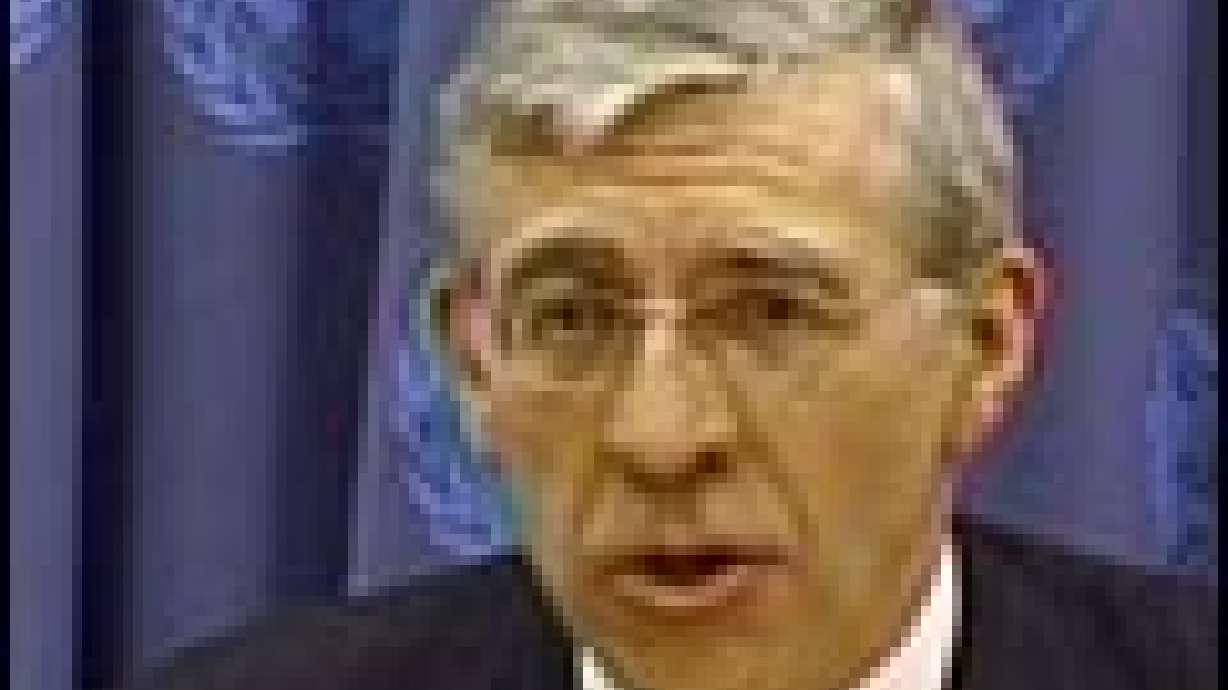Estimated read time: 3-4 minutes
This archived news story is available only for your personal, non-commercial use. Information in the story may be outdated or superseded by additional information. Reading or replaying the story in its archived form does not constitute a republication of the story.
LONDON (AP) -- Coalition forces must put their own safety before any duty to restore law and order in Iraq, British Foreign Secretary Jack Straw said Monday. He also expressed concern that Syria might be harboring former members of Saddam Hussein's regime.
As calm began returning to Baghdad after days of mass looting that targeted government buildings, banks and even hospitals, Straw warned of possible attacks by armed gangs on American and British troops.
"Disorder is always disturbing," Straw told British Broadcasting Corp. radio from the Persian Gulf state of Bahrain. "It is a responsibility of the people who are in control, the U.S., U.K. troops, to try and deal with it.
"However, any troops have to ensure their own safety and security from armed gangs before they can start any policing activities. This is not a benign policing environment."
Straw referred to Saturday's killing of a U.S. Marine, shot at a checkpoint outside a Baghdad medical facility by a man carrying a Syrian identification card, according to U.S. Central Command.
Even so, Straw said coalition forces were trying to halt the lawlessness. British forces have been working with Iraqi police to patrol the southern city of Basra after mass looting gutted many government buildings. Similar joint patrols by Iraqis and U.S. troops have begun in Baghdad.
"The last people in the world to wish to see hospitals ransacked are the United States or the United Kingdom. We have to restore order, just as we are doing very much in the south," Straw said.
Turning to Syria, Straw said the Damascus government needs to answer "a number of questions ... in a cooperative way." He noted that the Baath parties in Iraq and Syria have long been rivals, but that there had been cooperation between them in recent weeks.
"What we want from Syria are assurances that this has been stopped ... to ensure that fugitives from justice are brought to justice," he said in Kuwait, where he met with retired U.S. Gen. Jay Garner, who will head the initial Iraqi civil administration. "It's very important for Syria to appreciate that there is a new reality now that the Saddam regime is gone, and that its policy reflect this reality."
Separately, British Defense Secretary Geoff Hoon confirmed that Syria was not a military target, although its weapons program was featured in a memorandum to British lawmakers last year.
"Our immediate concern is the risk that some of those involved in Iraq's weapons of mass destruction programs might escape across the border into Syria, obviously boosting Syria's own efforts in those directions," Hoon told a news conference. "We are looking for cooperation from Syria that they will not allow access across their border."
Foreign Office minister Mike O'Brien was in Syria on Monday to discuss Britain's concerns.
Straw said the coalition forces were surprised by the speed of their victory over Saddam's regime.
"Military action has finished much more quickly than we anticipated, because the hold of the Saddam regime was even more fragile than we had thought," he said. "What is now going to be taking place during this week is the restoration of order in Baghdad and other places."
Straw said the coalition would also focus on steps to fill the political vacuum left by Saddam's downfall. He said a British representative would attend a consultative meeting Tuesday in the southern city of Nasiriyah on forming a representative Iraqi government.
(Copyright 2003 by The Associated Press. All Rights Reserved.)








